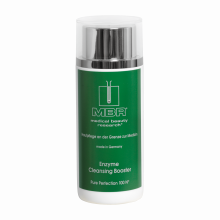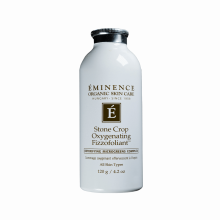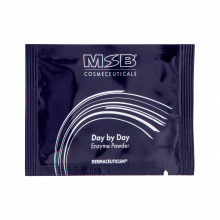Exfoliation
When you exfoliate, you remove the oldest dead skin cells that can cling to the skin's outermost surface. When it is performed correctly, exfoliation leaves the skin feeling softer and newer-looking. Exfoliation also enhances penetration for expensive facial products like serums.
There are two forms of exfoliation:
Mechanical Exfoliation
The lifeless cells are physically polished off with an abrasive. A salt glow, a body scrub made with sugar, coffee grounds, oatmeal, or skin brushing are all examples of mechanical exfoliation.
Mechanical Exfoliators
Chemical Exfoliation
Enzymes and special acids (alpha-hydroxy acids [AHAs] or beta-hydroxy acids [BHAS], for example) loosen the glue-like substance that holds the cells together, allowing them to fall away. Facial peels are a form of chemical exfoliation. They can be very gentle rather than very aggressive, depending on how powerful the product is.
Enzymatic peels
When Is Exfoliation Important?
Generally, exfoliation is more important for people over the age of 40.
The skin constantly generates new cells at the lower layer (the dermis) and sends them to the surface (the epidermis). As the cells rise to the surface, they gradually die and are filled with keratin. These keratinized skin cells are necessary because they give our skin its protective layer. But they are constantly coming off to give way for younger cells.
With age, cell turnover slows down. Cells begin to pile up irregularly on the surface, giving it a dry, rude, dull look. Exfoliation is helpful because it excludes cells clinging on, exposing the fresher, younger cells below.
Facial Exfoliation Basic Cautions:
- First, decide whether you really need to exfoliate or not.
- Research any exfoliation product before you use it- you may even consider talking to a dermatologist, depending on your age and skin type.
- Never use a body scrub on the face. They're very rough and could do more harm than good.
- With peels, never have two done in a row. You may end up exposing the dermis and then end up with scabbing or scarring.
- Never wax after recently having a peel. As with having two peels one after the other, waxing after a peel will expose raw, living skin, which will have to scab over to heal.
Body Exfoliation:
- Using a body scrub once or twice a week will pose no threat.
- A gentle way to exfoliate the body - is by brushing the body during the shower in the morning.
Most experts contest that daily exfoliation is never a good idea except for people with extremely oily skin. Remember, your goal is to remove the dead cells from the skin surface. As it may take a few days for a remarkable amount of dead cells to accumulate, it is sufficient for anybody who decides to exfoliate once or twice a week. However, if you exfoliate more often than that, you may remove too many, including living cells, raising the chance of inflammation and damage.
To determine the optimal frequency, look to your skin type, the strength of the exfoliates you use, and the application technique. If you develop increased sensitivity, irritation, or dryness, you are probably exfoliating too much.




